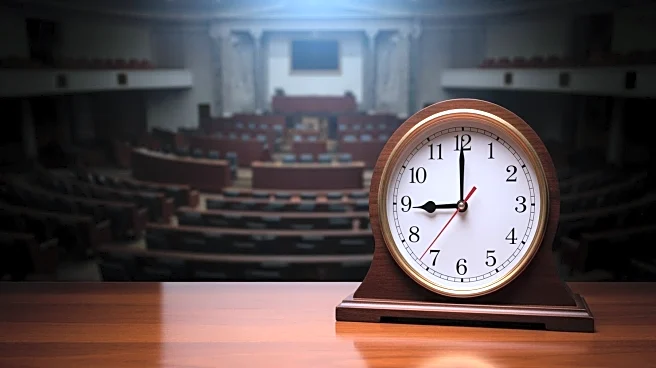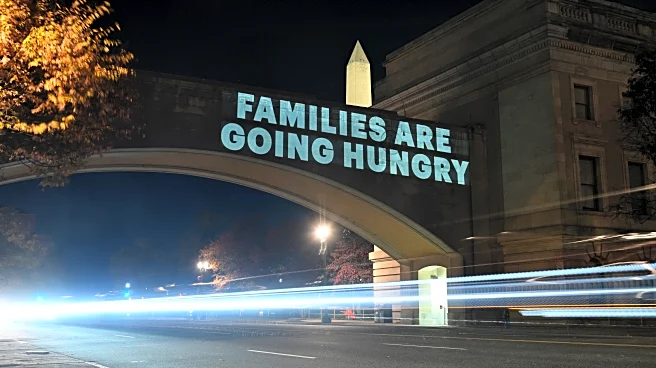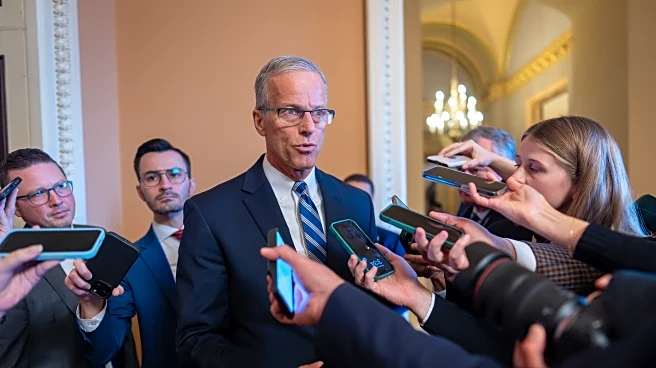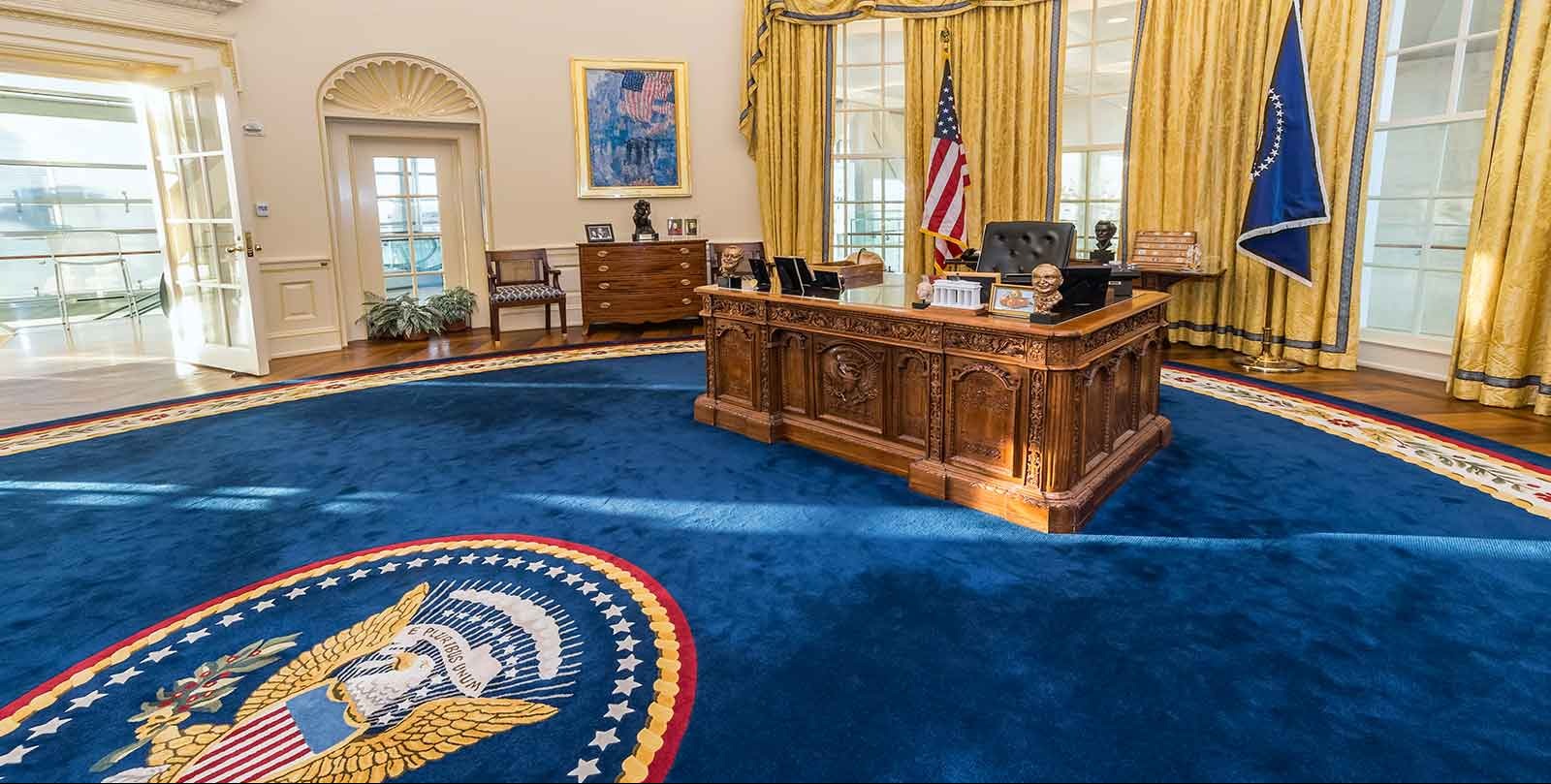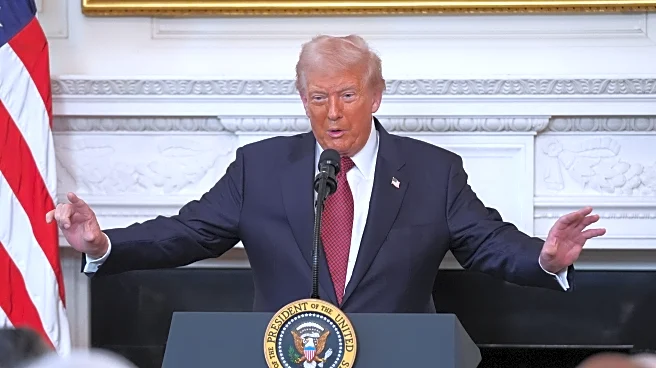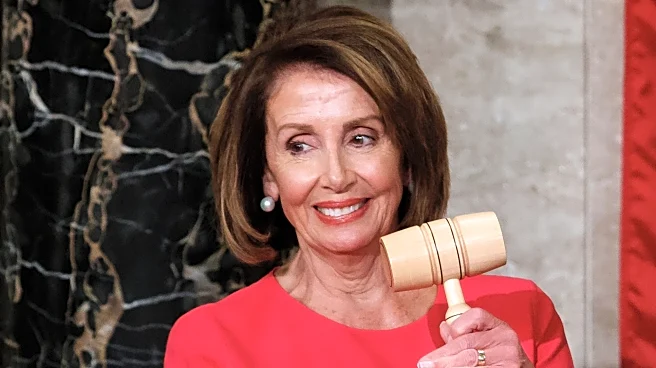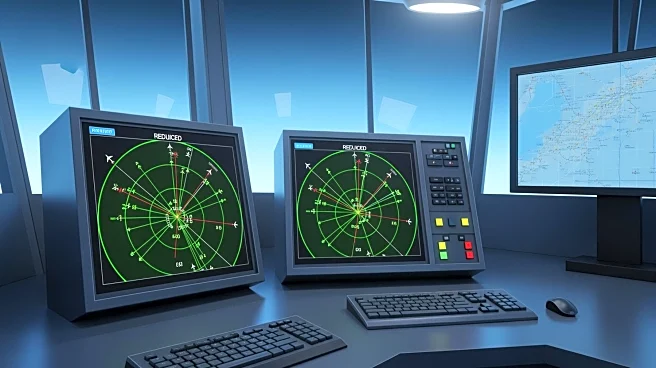What's Happening?
Senators convened at Capitol Hill for a rare Saturday session in an attempt to resolve the ongoing government shutdown. Despite the unusual timing, the session did not result in an agreement to end the shutdown,
which has been affecting various government operations. The shutdown has led to disruptions in services and has put pressure on lawmakers to find a resolution. The session was part of continued efforts by the Senate to negotiate terms that would allow the government to resume normal operations. However, the lack of progress indicates ongoing disagreements among lawmakers regarding budget allocations and policy priorities.
Why It's Important?
The government shutdown has significant implications for federal employees, contractors, and citizens who rely on government services. It affects various sectors, including national parks, public health services, and federal law enforcement operations. The inability to reach a resolution highlights the political gridlock in Washington, which can lead to economic uncertainty and decreased public trust in government institutions. Stakeholders such as federal workers face financial strain due to delayed paychecks, while businesses that depend on government contracts may experience disruptions. The prolonged shutdown could also impact upcoming legislative agendas and the overall political climate.
What's Next?
Lawmakers are expected to continue negotiations in the coming days to find a compromise that would end the shutdown. The pressure is mounting on both parties to reach an agreement, as the public and various interest groups demand action. Potential next steps include further discussions on budgetary allocations and policy adjustments that could satisfy both sides. The outcome of these negotiations will be crucial in determining the duration of the shutdown and its impact on government operations. Political leaders may also face increased scrutiny and pressure from constituents to resolve the issue promptly.
Beyond the Headlines
The government shutdown raises broader questions about the effectiveness of the current political system in addressing critical issues. It underscores the challenges of bipartisan cooperation and the impact of political polarization on governance. The situation may lead to discussions about reforming budgetary processes and improving legislative efficiency to prevent future shutdowns. Additionally, the shutdown could influence voter sentiment and participation in upcoming elections, as citizens evaluate the performance of their elected representatives.
